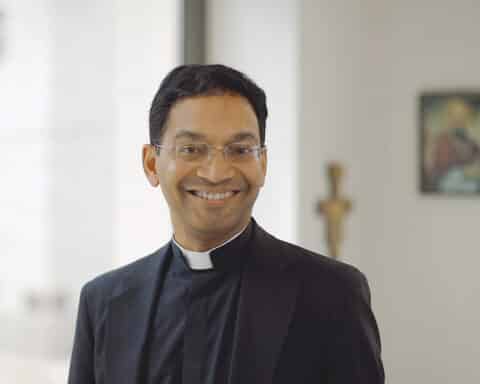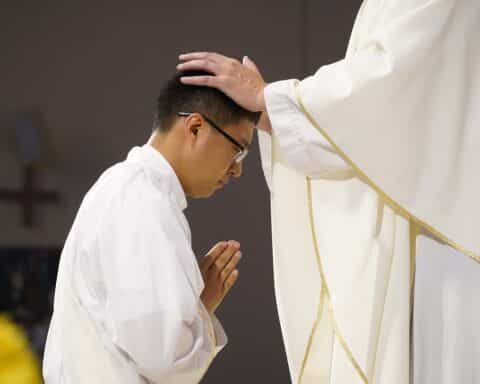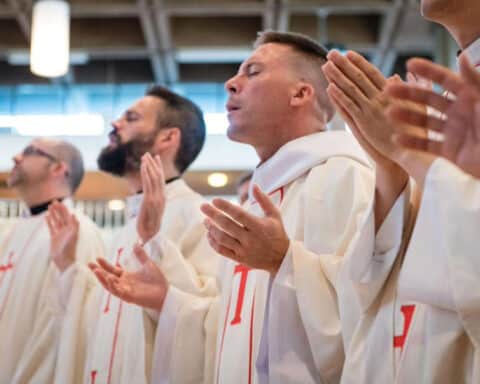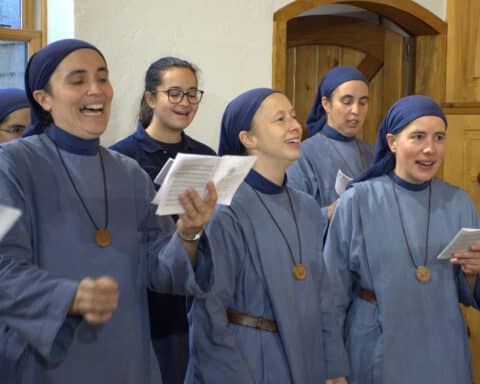At age 30, New York native Michael Almonte was a Catholic searching for more. He grew up in a very devout family where the Rosary was prayed every day, and he had been going to daily Mass for years.
“I knew my vocation was clearly not to the priesthood,” he said. “I really felt conflicted. I’ve always wanted to be as close as I could to the Lord, but I didn’t want to be a priest.”
Almonte very much identified with St. Thomas More after reading a book on his life. The 15th-century English lawyer and statesman was put to death for refusing to condone the immoral behavior of his leader, King Henry VIII.
“Here for the first time I learned about a very devout Catholic (St. Thomas More) who knew he was a layman and could live his faith purposely and seriously but not in an overly pious manner.”
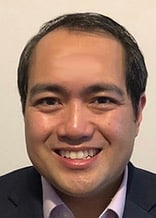
Almonte added that More, who is the patron saint of politicians and lawyers, was a fitting example for him, because he recently had finished law school and was beginning to practice as a business-immigration lawyer in New York City.
His search to find a “spiritual home” took a turn for the better in the spring of 2009 when he attended an Opus Dei retreat. The retreat sparked his interest in this unique Roman Catholic institution.
“Opus Dei” is a Latin term meaning “work of God.” It’s a Roman Catholic institution founded by St. Josemaria Escriva in Spain in 1928.
“I started attending different activities with Opus Dei and began meeting regularly with one of their priests for spiritual direction,” Almonte told Our Sunday Visitor. “The more I learned, the more I knew that this was where I needed to be.”
He added that he liked Opus Dei’s call to become a child of God in the midst of the world, while also offering every moment of every day to the Lord. Amonte likened his discovery of his Opus Dei vocation to the experience of putting on a well-tailored suit.
“If you ever have had a fine-tailored suit, you quickly realize what a great fit it is on you from head to toe,” Almonte said. “That’s what Opus Dei felt like for me, once I put it on. I knew this was it. It was a perfect fit.”
After a time of formation and then becoming a member, Almonte said that Opus Dei helped put an end to his young-adult years of living a “split-Catholic identity.”
“I was living a dichotomy,” he explained. “I could be the holy roller with my Catholic friends and the cool guy with my work friends. It was exhausting. Now with Opus Dei, I had one real well-defined Catholic identity. I had a mission. I stood for something. It made my life much simpler.”
Almonte, who married in 2012, noted that Opus Dei has helped him see that one of his apostolates is offering all his legal cases and clients to the Lord on a daily basis.
The vision
John Coverdale can strongly relate to Almonte’s story. Coverdale entered Opus Dei as a 16-year-old in Milwaukee, Wisconsin. He is now in his late 70s and retired from Seton Hall University, where he was a professor of tax law for more than 20 years.
Coverdale, who has written extensively on the spirit and charism of Opus Dei, worked with St. Josemaria Escriva in Rome for about seven years in the 1960s.
“I wasn’t one of his closest collaborators but had a number of interactions with him,” Coverdale said. “I worked in one of the offices that was preparing materials on how to explain Opus Dei.”
Coverdale explained that, as a young priest, Father Escriva had a mystical vision that there one day would be a group of people called to holiness and also to a specific charism they were to spread to others.
“He saw that this Opus Dei (work of God) would function as a group or an institution to give people the means to try putting the message (of everyday holiness) into practice,” he said.
When St. Pope John Paul II canonized Jose Maria Escriva in October 2002, the pope described him as “the saint of ordinary life.”
Coverdale added: “Vocation is very important to Opus Dei’s self-understanding and to the understanding of its members. Our members have a strong sense that their call to do this work is divinely inspired. You don’t just join Opus Dei like you join the Holy Name Society after Mass on a Sunday. Rather, members have a strong sense that they are to sanctify their own lives and others through their daily ordinary work. To be in the world is our thing.”
| The Face of the Church |
|---|
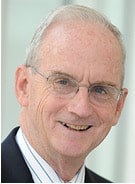 John Coverdale quipped that members of Opus Dei do not wear lapel pins denoting their membership in the organization. However, he related that if a member is truly faithful to their vocation, it should be clear that there is something different about them. “People whom I worked with all knew I was a member of Opus Dei,” he said. “I talked about it all the time.” Michael Almonte concurred. Being the “Catholic guy” at work comes with the territory. “I’m asked all the time what I think about something the pope said or what is happening with this child-abuse scandal,” he said. “When it’s a one-on-one conversation, it’s very comfortable. I have no problem sharing my opinions. In a group setting, it’s a little harder in that I suddenly become the spokesperson for the Church. It’s then that I often direct people to discover answers on their own or to read more on whatever the topic may be.” He also relies a lot on the Holy Spirit. “My aspiration is, ‘Help me to meet this person with charity and love.’ I am often amazed. I am much more patient with those who have questions today than I was before I joined Opus Dei,” he said. “Back then, I was somewhat hostile and often on the defensive.”
“St. Josemaria called Opus Dei a great catechesis,” McDaniel said. “We are trying to help people to recognize the universal call to holiness and to give them practical, concrete help to live that out. So, I am very much out there trying to do my part.” |
The work of God
Today, Opus Dei has around 2,000 priests and 90,000 members around the world.
Single members of Opus Dei commit themselves to a celibate life and often live in community at an Opus Dei center. Most hold professional jobs outside the center.
Married members carry out their call of holiness in their homes and among neighbors, friends and co-workers.
An Opus Dei priest primarily is concerned with the spiritual needs of the institution’s lay members and also assists with apostolic activities by preaching, offering spiritual direction and administering the sacraments.
Unlike religious orders where the daily ministry, such as teaching or working with the poor, clearly is laid out, the day-to-day work of God and how that is lived out in Opus Dei is as varied as its members. However, there are some non-negotiables required of all members, such as daily Mass attendance, recitation of the Rosary and spending some time in mental prayer.
“Beyond those daily practices, the principal apostolate of all our members is a very personal one carried out by example, friendships and conversations,” Coverdale said.
Monica McDaniel is a wife and stay-at-home mother of four small children in New York. She has been a member of Opus Dei since 2002.
“Besides Mass, mental prayer and Rosary, my spiritual director and I mapped out a plan of life for me,” she said. “It includes helping at our (Opus Dei) center by giving spiritual talks to other women. I am also focused on helping young mothers grow in their faith. But all of this work has to overflow from my prayer life, which is hidden.”
Eddie O’Neill writes from Michigan.

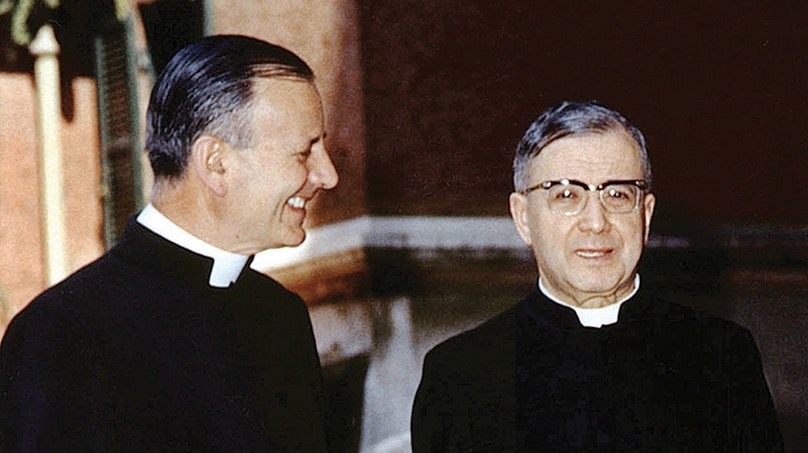
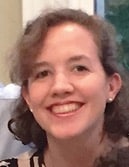 As part of her work, Monica McDaniel is helping to facilitate a conference with speakers to help laypeople discuss the Church’s sex-abuse scandal, consider remedial steps for the Church and consider whether any positive renewal may eventually emerge from this tragedy.>
As part of her work, Monica McDaniel is helping to facilitate a conference with speakers to help laypeople discuss the Church’s sex-abuse scandal, consider remedial steps for the Church and consider whether any positive renewal may eventually emerge from this tragedy.>